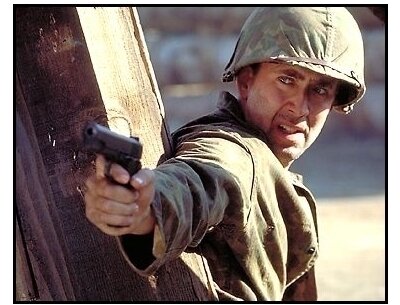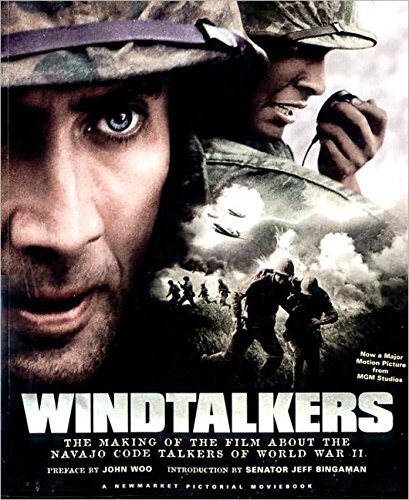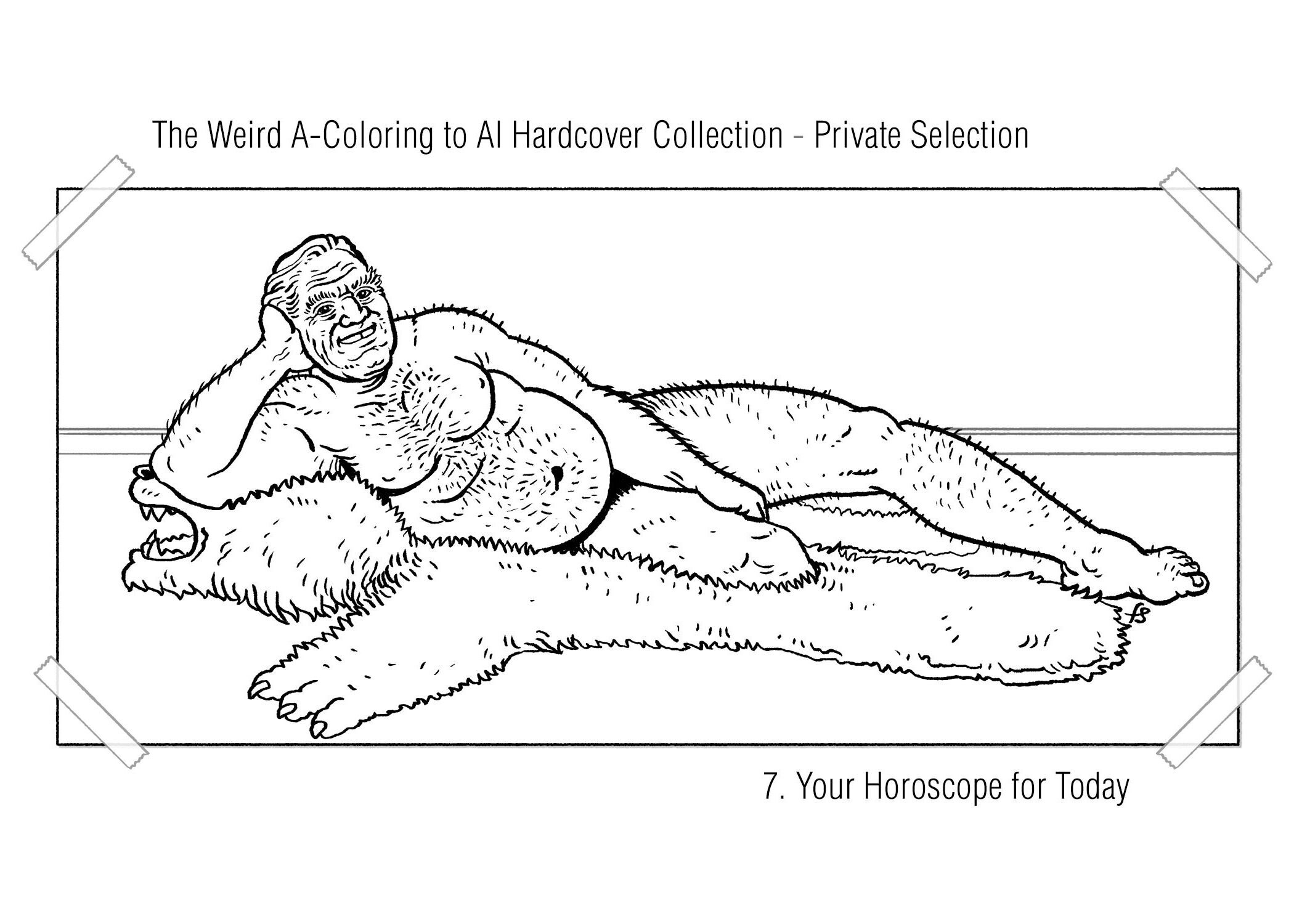My World of Flops Case File #184/The Travolta/Cage Project #67 Windtalkers (2002)
The Travolta/Cage Project is an ambitious, years-long multi-media exploration of the fascinating, overlapping legacies of Face/Off stars John Travolta and Nicolas Cage with two components: this online column exploring the actor’s complete filmographies in chronological order and the Travolta/Cage podcast, where Clint Worthington, myself and a series of fascinating guests discuss the movies I write about here.
Read previous entries in the column here, listen to the podcast here, pledge to the Travolta/Cage Patreon at this blessed web address and finally follow us on Twitter at https://twitter.com/travoltacage
Sometimes if I see a movie when I am feeling down and it leaves me cold or fails to engage me emotionally I wonder if what I’m responding to is the film itself or my melancholy mood.
There is no such thing as an objective viewer. We’re all influenced by everything around us. If, for example, the pleasure centers in a depressed person’s brain aren’t functioning correctly then they’re probably going to have a hard time losing themselves in the mirth and merriment of a silly comedy.
Alternately, a goofy romp might just be exactly what a sad sack needs to turn their frown upside down and enjoy life and its myriad wonders.
When I saw Tim Burton’s infamous “re-imagining” of Planet of the Apes I was in one hell of a depressive funk and worried that my negative response to it might have been rooted in my misery.
Nope! Planet of the Apes just fucking sucks! It really blows! It wasn’t me: it was Burton’s movie.
I had a similar response to John Woo’s 2002 war movie Windtalkers. I didn’t like it. I didn’t particularly dislike it. I didn’t have much of a reaction to it at all. It just sort of washed over me.
Was I underwhelmed by Windtalkers because it’s legitimately underwhelming or because I wasn't in the right frame of mind for it?
That’s one of the reasons why it’s nice to have a podcast where you can work through your feelings about movies with a friend and colleague. Talking to Clint about Windtalkers helped me realize that I was not alone in being disappointed in Woo’s ambitious but bloated war epic.
In fact “disappointed" pretty much describes the critical consensus as far as Windtalkers is concerned.
As I’ve written earlier, John Woo made an audacious if modest American debut with the crazily over-achieving Jean Claude Van Damme vehicle Hard Target. He followed it up with Broken Arrow, a wildly entertaining b-movie that represented a big step up from Hard Target in terms of scope and ambition.
Woo’s American career climaxed spectacularly with 1997’s Face/Off, a towering, timeless masterpiece that gave the iconic Hong Kong master nowhere to go but down.
That’s exactly the direction he headed with each of his subsequent American films, beginning with 2000’s Mission Impossible 2, which out-grossed Face/Off but is now half-remembered as the worst entry in the series.
Windtalkers kept Woo’s critical and commercial losing streak going strong and there’s something both sad and hopelessly apt about Woo’s American career, which began which such extraordinary promise and reached incredible heights with Face/Off ending with a 2003 movie called Paycheck. Paycheck’s title doubles as Woo’s motivation for taking the gig.
When he made Windtalkers Woo’s American career had peaked and was on an unmistakable downward trajectory. That’s too bad, because on paper at least Windtalkers radiates extraordinary potential, if only because it saw him reuniting with the star of his best American film.
Alas, the oddly thankless role of tormented, half-deaf Sergeant Joe Enders does not suit Cage anywhere near as beautifully as psychopathic terrorist Castor Troy did.
Windtalkers is a movie about Navajo code talkers who played a pivotal role in World War II by sending and receiving coded messages that the Axis powers could not understand.
But it’s also a big-budget (115 million dollars) American studio movie so instead of foregrounding the lives and experiences of Native Americans it’s instead told through the prism of bigoted white soldiers who learn that racism is bad from a pair of Navajo code talkers who are selfless saints as people and super-soldiers in battle.
There’s seemingly no story so inextricably rooted in the lives of minorities that it can’t be glibly transformed into a story about attractive white people learning life lessons.
In Windtalkers, the handsome white man in question is Cage’s soulful Sergeant, who loses much of his hearing in a battle that scarred him emotionally as well as physically in addition to winning him a Silver Star he dismisses as less than meaningless.
Sergeant Joe’s road to spiritual redemption begins when he is given the assignment of protecting Private Ben Yahzee (Adam Beach), a gentle, baby-faced Navajo code talker serving alongside best friend Private Charlie Whitehorse (Roger Willie).
Joe’s orders are clear: the code-talkers are not to fall into enemy hands under any circumstances. So Joe and colleague Sergeant Peter "Ox" Henderson (Christian Slater) are told that if the Japanese capture their Navajo colleagues they must kill them to ensure that the Axis powers are not able to crack Allied codes.
In actuality soldiers were never told to kill code talkers if they fell into enemy hands and Windtalkers isn’t exactly lacking for bleary melodrama even without blatant historical inaccuracies.
The Navajo code-talkers find themselves the target of ugly bigotry from white soldiers, most egregiously Private First Class Charles "Chick" Clusters (Noah Emmerich), a cartoonishly, distractingly ignorant bigot who conveys a level of racism seldom seen outside of Klan rallies in the deep south until he learns to appreciate the selfless sacrifices of Native soldiers when one literally saves his life despite having every reason to want to see him die a horrible death.
Beach has a wonderful presence, at once sweet, tender and soulful but the film makes him and Private Charlie Whitehorse paper saints who exist to teach white people to be better, more spiritual people rather than as complex, nuanced characters with agency and independence.
There’s a powerful, thorny and complicated movie to be made about Native Americans risking their lives to serve a country that did its damnedest to wipe them off the face of the earth but this is not that movie.
Windtalkers is more interested in sluggishly subscribing to formula, cliches and conventions than in exploring the painful, provocative issues and conflicts at its core.
It’s the kind of movie where a soldier innocently asks a fellow soldier to give a ring to their girl should anything happen to them, something that invariably guarantees a violent, imminent demise.
Woo apparently set out to make a movie about friendship and honor only to be told that the studio wanted a conventional war movie full of explosions and gunfire and battle. So he cut the movie down to 134 minutes from a 153 minute Director’s Cut and ended up with a compromise that pleased no one, that worked as neither a conventional war movie or a John Woo movie about love and betrayal.
Windtalkers made very little impact on me but I’m glad I'm writing about it if only to share the following bit of IMDB Trivia: “Nicolas Cage actually learned to speak Navajo fluently for his part, despite the fact that his character in the film does not. Cage later said that he did it to better understand the script, but John Woo maintained that Cage had misunderstood the character for which he had been cast.”
How beautiful and perfect is that? It almost seems too good to be true but I desperately want to believe that Cage is such an artist that he would do something as time and labor intensive as learning an entirely new language merely as background.
That Windtalkers would prove to be one of Cage’s most forgettable efforts from this period in his career makes his sacrifice even more poignantly insane and unnecessary.
Then again learning to speak Navajo fluently for a role that does not require him to speak Navajo at all is exactly the kind of feverish commitment and deranged conviction that makes Cage one of our greatest and least predictable artists.
Failure, Fiasco or Secret Success: Failure
Missed out on the Kickstarter campaign for The Weird A-Coloring to Al/The Weird A-Coloring to Al-Colored In Edition? You’re in luck, because you can still pre-order the books, and get all manner of nifty exclusives, by pledging over at https://the-weird-a-coloring-to-al-coloring-colored-in-books.backerkit.com/hosted_preorders
and of course you can buy The Weird Accordion to Al here: https://www.nathanrabin.com/shop
AND of course you can also pledge to this site and help keep the lights on at https://www.patreon.com/nathanrabinshappyplace
Pre-order The Joy of Trash, the Happy Place’s upcoming book about the very best of the very worst and get instant access to all of the original pieces I’m writing for them AS I write them (there are five so far, including Shasta McNasty and the second season of Baywatch Nights) AND, as a bonus, monthly write-ups of the first season Baywatch Nights you can’t get anywhere else (other than my Patreon feed) at https://the-joy-of-trash.backerkit.com/hosted_preorders









